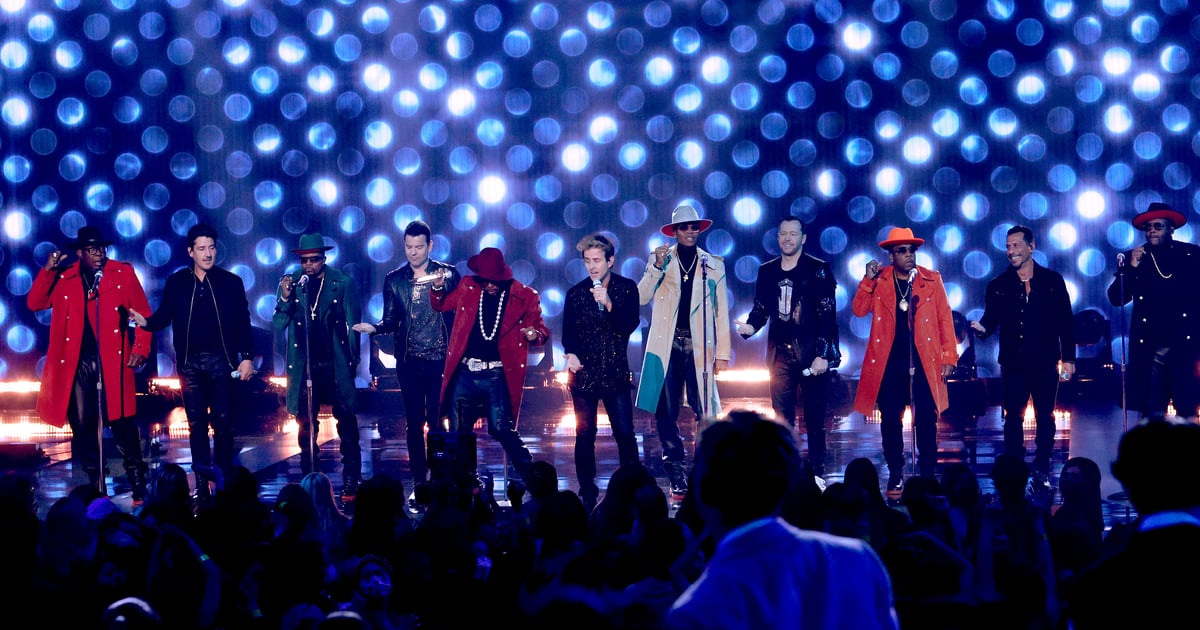NEW EDITION: FOR THE UMPTEENTH TIME DON'T CALL THEM A BOY BAND BY SHELDON TAYLOR

New Edition’s
appearance with fellow Bostonians NKOTB on last night’s American Music Awards was a full circle moment, continuing the string of
victories continuing to tip the scales in their favor after decades of career ups-and-downs.
During NE's early years, one-sided management deals devoured their royalties and performance earnings. As NKTOB became millionaires, NE languished in financial purgatory. Group implosions grounded lucrative career take-offs. As the years came and went, others passed them by and reaped rewards that were always just beyond their grasp.
Fast forward to 2021.
A pair of TV biopics, a partnership with a high-powered Hollywood agency and a looming Vegas residency have rebooted R&B’s greatest entertainment franchise embodying lyrics to their 90s celebratory anthem Oh Yeah It Feels So Good:
Now the come has come/to return as one/ and its never been better.
NE’s future looks bright but it’s time to re-frame their legacy in a more accurate light. For the umpteenth time, New Edition is not a boy band.
How could six men over the age of fifty be reduced to a fleeting pop moment in time?
Maybe its because of Black music's tendency to
move at the speed of light---shedding its creative skin and legacy---with chameleon-like
urgency. Because of this, history is lost in transition.
The results are crippling.
Some of us may be too young to understand how race,
economics, and a changing musical aesthetic wiped out the Black group concept that thrived for decades due to industry fixation on the bottom line along with the 80s solo act.
While other genres' collective musical integrity remained intact, R&B,
funk and soul’s survival to move with the ever-changing times.
For every
Kool and the Gang and Cameo that survived this cosmetic transformation, others perished
on the industry operating table. Black music's communal legacy seemed to be lost to future generations.
New Edition arrived to carry on tradition.
Swaddled in their parents Saturday morning soundtracks and weaned on Soul Train, Ronnie, Bobby, Ricky, Mike, Johnny and Ralph bridged past and present.
A rendition of LTD's Holding On (1978) pulled NE off the talent show circuit and into the studio. Merry-go-around vocals on early records like Candy Girl and Popcorn Love recalled Sly, the Temptations, The Jackson Five and Grandmaster Flash and Furious Five's round-robin style.
The addition of Johnny's churchy baritone was like Teddy Pendergrass joining the Blue Notes. Mike's baritone rap/speak echoed 70s soul vocal breakdowns. Records like Is This The End were steeped in the wistful romance of the Stylistics and idols Blue Magic. Onstage their slick choreography was reminiscent of fading older soul vocal groups.
NE even rhymed on records.
For those who weren't around for George Clinton's and funk group Slave's (shout out to their fearless leader Steve Washington) seminal blueprint for the Black spin-off group pre-Wu-Tang---NE raised the bar in the late 80s/early 90s (coupled with Mike Bivins' power moves) to become the stuff of legend (and inspiration).
(see: Where Did All The R&B and Hip Hop Groups Go? )
Before the arrival of other YBEs (read: young Black entertainers) of the New Jack Swing/hip-hop soul eras---NE were keepers of the R&B ancestral flame. Their backstory is part blueprint/part cautionary tale. They survived entertainment pitfalls that claimed the lives and careers of Black music pioneers. Thankfully all are alive to enjoy their this career resurgence.
Episode 1 ("The Boyz II Men Effect") of the Netflix special This Is Pop places the explosion of boy band pop movement at the feet of Boyz II Men's massive popularity. That success is fortified by a durability that defies crossover success.
Boyz II Men's sustainability represents a cyclical stewardship passed on to the group by NE's Mike Bivins who would inherited it from longtime collaborators Jimmy Jam and Terry Lewis along with early producer Maurice Starr.
In numerology the number six symbolizes harmony and symmetry. At their best New Edition epitomizes this. Don't call it a comeback they've been here for years. And for the umpteenth time----don't call them a boy band. They will forever be an institution who'll remain in our brains like a hieroglyphic.



Comments
Post a Comment